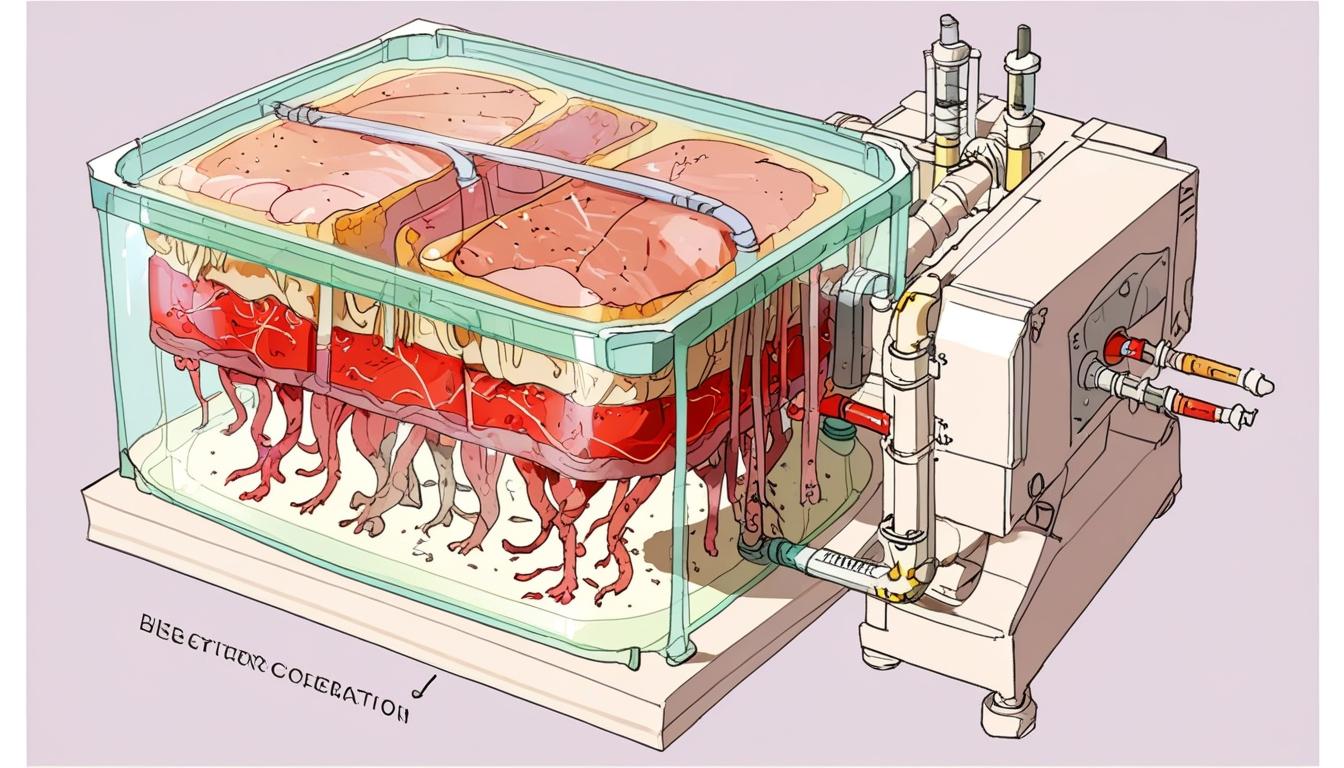A team of Japanese researchers led by Professor Shoji Takeuchi at the University of Tokyo has announced a significant advancement in the field of cultivated meat production. The group has developed a novel technology that imitates a circulatory system to evenly distribute nutrients throughout lab-grown meat, overcoming one of the primary challenges in producing larger, whole cuts of cultured meat.
The breakthrough involved the successful cultivation of small chicken pieces measuring approximately 1 by 2 centimetres, resembling nugget-style portions. According to Professor Takeuchi, the biofabrication of whole cuts of cultured meat is particularly challenging because it requires the formation of densely packed and highly aligned muscle fibres over lengths greater than a few centimetres. These structural features are essential to replicating the texture and flavour of traditional meat.
To achieve this, the research team designed a bioreactor system in which the meat grows within a gel that is evenly permeated by hollow fibres, effectively mimicking a circulatory network. This allows nutrients to be distributed uniformly during the growth process, encouraging the development of muscle fibres that closely resemble those found in conventionally farmed meat. As a result, the cultivated protein exhibits improved texture and taste.
Currently, the hollow fibres used in this method need to be removed after cultivation, but future iterations may incorporate edible cellulose versions, eliminating the need for removal. Moreover, the integration of artificial blood is anticipated to enhance nutrient and oxygen transport, enabling the production of even larger pieces of cultivated meat.
The Good Food Institute reports that nearly 200 companies worldwide are engaged in developing cultivated meat and related technologies, with over USD 3.1 billion invested in the sector. However, scaling up production remains a complex technical hurdle despite recent scientific advancements. Professor Derek Stewart of the James Hutton Institute’s Advanced Plant Growth Centre described the University of Tokyo’s development as an "elegant" and "transformative" approach that could pave the way for truly scalable cultivated meat in the future.
Beyond the food industry, Professor Takeuchi’s team highlighted the broader potential applications of their artificial circulatory system. It could, for instance, facilitate the large-scale growth of replacement organs, offering promising benefits for regenerative and transplant medicine.
This advancement represents a crucial step forward in cultivated meat technology, contributing to ongoing efforts to develop sustainable and scalable alternatives to conventional animal agriculture.
Source: Noah Wire Services
